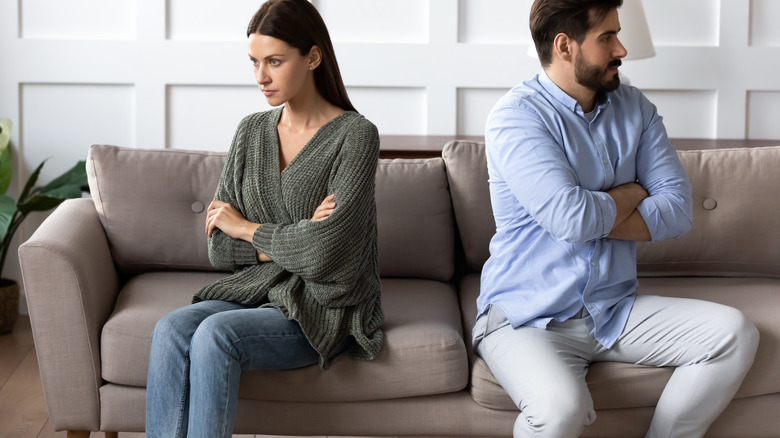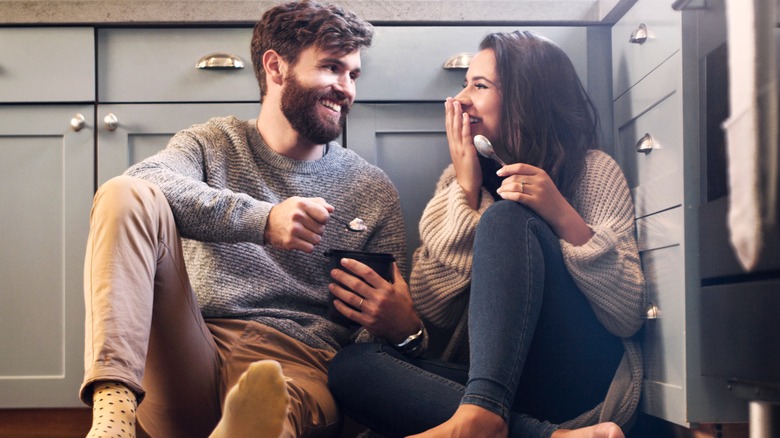What To Do When Your Partner Refuses Couples Counseling
Relationships are not always easy. Life often feels overwhelming, particularly with the addition of children, financial stressors, and other emotional struggles; as the chaos grows, you might run into some obstacles with your partner. When this happens, don't put your romantic relationship on the back burner. Explaining your needs to your partner is essential. Unfortunately, healthy communication doesn't come naturally to everyone, and it can be hard to understand your own feelings enough to explain them to someone else.
This is where couples counseling comes into play. Counseling provides a great opportunity to connect with your partner under the guidance of a trained professional. However, if your partner is hesitant to discuss their struggles with a stranger, you'll need to find alternate solutions.
When your partner refuses couples counseling, it's easy to take the rejection personally. It might feel like they aren't willing to put effort into improving their relationship with you, but that's not necessarily the case. As long as both partners are on the same page, there are many other tools that couples can use to strengthen their relationship.
Analyze what your relationship needs
While some couples proactively confront potential issues in a relationship — some even consider premarital counseling — that's not necessarily the norm. If you're pitching the idea of couples counseling, chances are that it's safe to assume your partner is already aware of some problems. Therefore, sitting down and having an open and honest conversation about the possible ways you can move forward together is a good first step. Understanding what you need from your partner and what they need from you will help to establish goals.
Reading relationship-oriented self-help books or taking online quizzes to understand your individual love languages can clarify why you feel certain ways. This knowledge is also extremely valuable when it comes to avoiding arguments, because it limits miscommunications. You may feel rejected by your partner because they never touch you, while they may think that doing the dishes and folding the laundry was showing you love. Knowing how each partner gives and receives affection will help couples share it in the most effective ways.
Feeling disconnected from your partner can also lead to additional strife. Sometimes, one partner may avoid discussing a stressful day at work because they don't want to bring the mood down. However, this leads to increasingly overwhelmed individuals and less communication overall. Instead, committing to communicating through both the good and the bad times helps couples stay united.
Don't avoid the issues
Sometimes, the idea of seeing a couples counselor triggers anxiety because it makes the issues feel bigger than they are. However, many couples wait years to address the problems in their relationships because they don't know how to tell if they need counseling. Others may view counseling as a last resort before separation or divorce, and fear that accepting counseling is the same as admitting that their relationship is broken.
At the end of the day, these avoidance techniques stem from insecurity and a fear of social judgment. Simply being honest about wanting the healthiest relationship possible is a great way to shift one's mindset. In addition, doing so helps remove the stigma surrounding counseling. If talking to a stranger feels uncomfortable, seeking advice from trusted friends or family members may be an option, since they already know both of you and care about your success.
When relationships are struggling, it's easy to only share parts of the story with your friends, or to sugarcoat reality. However, asking for guidance from the people in your life who are genuine and wise can be really helpful. Of course, approaching this as a couple is imperative. The unfortunate truth is that one person can seek advice, go to counseling, and read all the self-help books, but unless you're tackling your problems as a duo, research shows that it probably won't fix your problems. This is why getting on the same page as your partner and agreeing to actively work on your relationship together needs to be a mutual decision.


